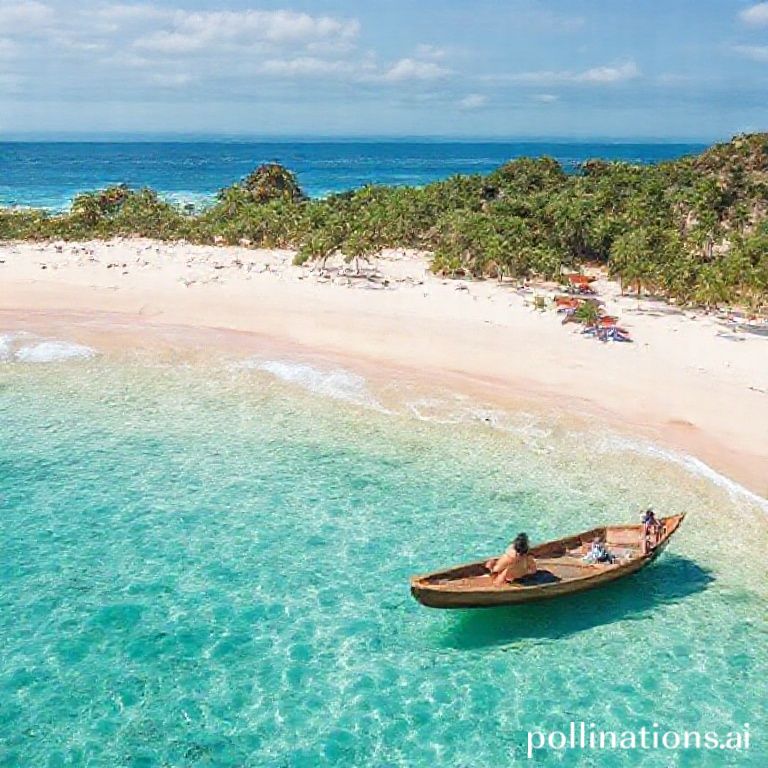Imagine yourself on a pristine beach, the turquoise water gently lapping at the shore, the warm sun kissing your skin. A perfect vacation, right? But what if our love for these beautiful coastal paradises is actually harming them? Sustainable beach tourism is about enjoying these locations responsibly, ensuring they remain beautiful and vibrant for generations to come. It’s a conscious effort to minimize our impact and contribute positively to the local environment and communities.
As travelers, we have the power to make a difference. By adopting a few simple practices, we can significantly reduce our environmental footprint and help preserve the natural beauty of our favorite beaches. This isn’t just about following rules; it’s about cultivating a mindset of respect and appreciation for the delicate ecosystems that make these destinations so special.
Understanding the Impact of Beach Tourism
Before diving into solutions, it’s important to understand the challenges. Traditional beach tourism, while economically beneficial, can have detrimental effects. These include pollution from litter and wastewater, damage to coral reefs from careless snorkeling or diving, disruption of wildlife habitats, and strain on local resources like water and energy. Overcrowding can also lead to a decline in the quality of the visitor experience, impacting both tourists and local residents.
Pollution and Waste Management
- Single-use plastics are a major culprit, often ending up in the ocean and harming marine life.
- Improper disposal of waste contaminates the sand and water, posing health risks.
- Wastewater runoff from hotels and resorts can pollute coastal waters, damaging sensitive ecosystems.
Habitat Destruction
- Construction of hotels and infrastructure can destroy mangrove forests and other vital coastal habitats.
- Recreational activities, such as off-road vehicles, can disturb nesting sites and erode dunes.
- Coral reefs, often the main attraction for snorkelers and divers, are extremely fragile and easily damaged by physical contact.
Tips for Sustainable Beach Tourism
Fortunately, there are many ways to enjoy the beach responsibly. By incorporating these practices into your travel plans, you can contribute to a more sustainable future for coastal tourism.
Choose Eco-Friendly Accommodations
Look for hotels and resorts that prioritize sustainability. These establishments often have implemented practices such as water conservation, energy efficiency, waste reduction, and support for local communities. Certifications like LEED or Green Globe can be good indicators of a property’s commitment to sustainability. Ask questions about their environmental policies before you book.
Reduce, Reuse, Recycle
This is a golden rule for all travelers! Bring your own reusable water bottle, shopping bag, and toiletries to minimize single-use plastics. Properly dispose of waste in designated bins and support recycling programs. When possible, choose products with minimal packaging.
Respect Marine Life
Avoid touching or disturbing marine animals and their habitats. When snorkeling or diving, maintain a safe distance from coral reefs and avoid stirring up sediment. Never feed the fish, as this can disrupt their natural feeding patterns. Choose reef-safe sunscreen to protect delicate coral ecosystems from harmful chemicals.
Support Local Communities
Choose locally owned restaurants and businesses to support the local economy. Purchase souvenirs from local artisans rather than mass-produced items. Engage with the local culture respectfully and learn about the community’s history and traditions. Consider volunteering for local conservation projects.
Conserve Water and Energy
Be mindful of your water and energy consumption. Take shorter showers, turn off lights and air conditioning when you leave your room, and reuse towels when possible. These simple actions can collectively make a significant difference.
Leave No Trace
Pack out everything you pack in, and leave the beach cleaner than you found it. Participate in beach cleanups to help remove litter and debris. Encourage others to do the same. Small actions can create a positive ripple effect.
Conclusion
Sustainable beach tourism isn’t just a trend; it’s a necessity. By embracing responsible travel practices, we can protect the beauty and integrity of our coastal environments, ensuring that future generations can enjoy them as much as we do. It’s about making conscious choices that minimize our impact and contribute to the well-being of the local communities. So, the next time you plan a beach getaway, remember that your actions have the power to make a difference. Let’s choose to travel responsibly and leave a positive footprint on the world.
If you found these tips helpful, please share this article with your friends and family and let’s spread the word about sustainable beach tourism!
IMAGE: A serene and inviting beach scene. The image showcases clear turquoise water gently lapping onto a white sandy beach. A few sunbathers relax under colorful umbrellas in the distance. In the foreground, there’s a reusable water bottle and a straw hat partially buried in the sand. The overall mood is peaceful and eco-conscious, with warm, natural lighting. The style is realistic and inviting, suitable for a travel blog.


